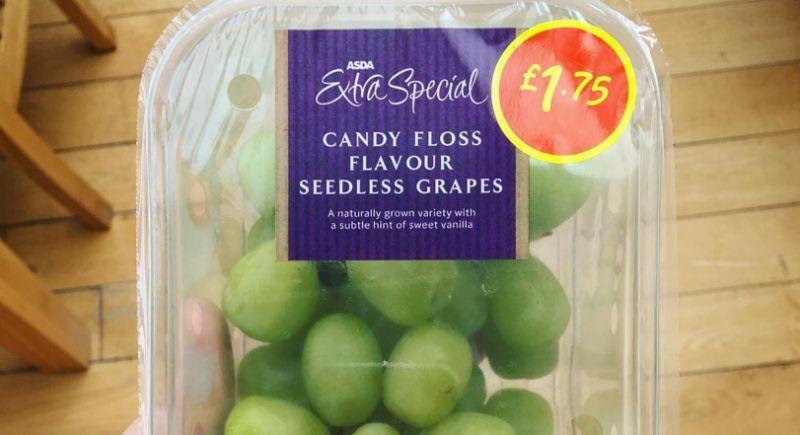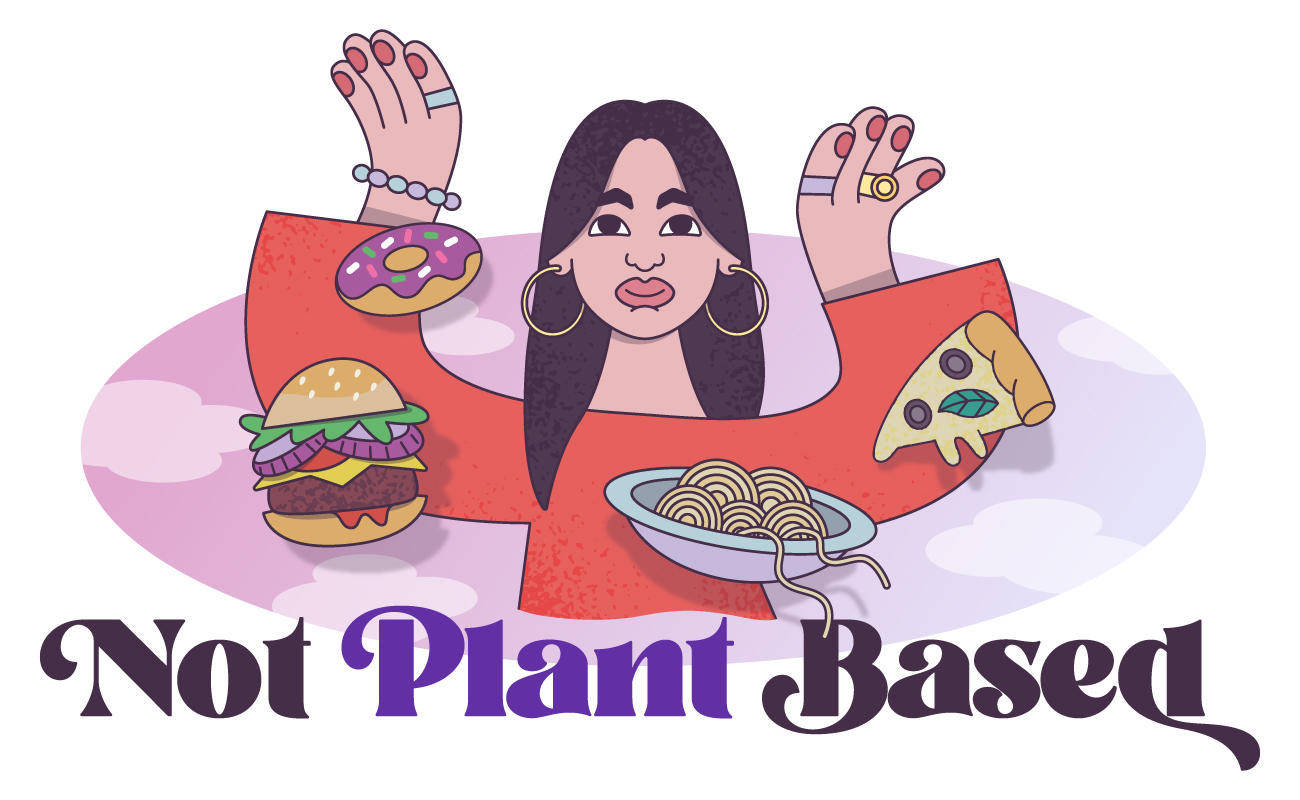
If, like me, you’re a slave to Celebrity Gogglebox and also have a basic understanding of nutrition science, last week’s episode made for buttock-clenching, infuriating viewing. Radio One DJ Nick Grimshaw, commonly known as ‘Grimmy’ helpfully (also see: unhelpfully) informed his niece that snacking on fruit was ‘just like eating sugar’. When he goes on a diet, he continued, he cuts out dairy, carbohydrates and, of course, fruit. Presumably a box of dust particles is on hand to get him beach body ready. Thanks for the hot take Grimmy, but I’m here for your critical evaluation of First Dates, NOT your failsafe eating disorder recipe.
The following day something bizarre happened. The Internet was suddenly filled with fruitphobic chat. Most of the furore centred on a French study, published in the British Medical Journal, which found a link between high consumption of fruit juice and increased risk of cancer. Then, a couple of influential food ‘influencers’ started banging on about how modern-day fruit has been doctored by us medalling sweet-addict humans, increasing its sugar content to ‘unnatural’ levels. The banana in your local Tesco’s is not even a proper banana, they say.
Perhaps Grimmy has spread his pseudoscientific seed all over the nation, or – most likely – it’s impossible for Britons NOT to pick holes in something healthful, pleasurable or delicious. So what’s the truth?
Firstly, some basic biology/chemistry.
Sugar in food and drink exists either as a bunch of singular sugar molecules, called monosacchardies, or complex, inter-twined sugar molecules, called disaccharides. Disaccharides are sucrose (a mixture of glucose and fructose) and lactose (the sugars found in milk) whereas monosaccharides are glucose and fructose. Table sugar is a 50:50 mixture of glucose and fructose (i.e sucrose) and most sugary treats contain this type of sugar, although some have added fructose too. Fruit also contains a mixture of fructose and glucose, however the quantity of fructose tends to be higher – roughly 60 per cent.
So you can see why any naÏve media personality may jump to the conclusion that an apple is just as bad for your health as a lollipop. But don’t be fooled – of course it’s not that simple. For starters, the amount of free-roaming sugar particles in non-fruit sugar is much higher than that of fruit and it is for this reason that the World Health Organisation warns of the risk of tooth decay with diets high in sugary foods. Decay occurs because acid is emitted when the bacteria in the mouth breaks down the simple sugars. This acid dissolves the tooth’s surface. Because the sugars in fruit are both not as high and combined with other nutrients (fibre, vitamins and minerals) less acid is released.
Most importantly, fruit is SO much more than just sugar. A large cup of raspberries provides about a third of your daily fibre intake, as well as vitamins C,K, E, magnesium, calcium and thiamine – all essential for a healthy, working human body. Whereas the sucrose in table sugar (stripped of its vitamins and fibre) is immediately broken down and released into the bloodstream, the sugars in fruit take a while to squeeze their way out. In the meantime, the body is soaking up all that bowel-friendly fibre as well as a host of vitamins and minerals. Because fruit presents more of a digesting mission to our bodies, it keeps us full for much longer than, say, a bag of Haribo would (although much less satisfied IMHO).
It is for these reasons that scientists think diets high in fruit are linked to lower incidences of heart disease, cancer and, of course, vitamin deficiencies. Another study involving almost 200,000 women found that high consumption of fruit and vegetables reduced the risk of developing type two diabetes. It’s worth noting that these studies are observational and the protective effect may be due to other factors (people who eat a lot of fruit also tend to be richer, have healthier diets and do more exercise – all linked to reduced disease risk). But scientists are unanimous about one thing: there is no evidence that eating a lot of fruit is bad for you/has the same health risks as eating too much table sugar.
The concern of health professionals is about a type of sucrose, fructose or glucose called ‘free sugars’ which mean the sugar is not bound inside plant cells, so can be easily and immediately digested by the body. Sweets, cookies, fruit juice (juicing fruit releases it from plant cells), honey and cakes, for example. Super-speedy digestion causes immediate spikes in blood sugar, and therefore energy, which doesn’t last long, making you hungrier quicker and more likely to snack. Fructose (which makes up 60 per cent of the sugars in fruit, remember) is also metabolised differently to glucose – it heads straight to the liver – further delaying the time it takes to be converted into energy.
It also goes without saying that it’s easy to consume a hefty number of calories by eating sugar-loaded foods because they are, let’s be honest, delicious. Here lies the much-talked-about link between obesity-related disease and sugar consumption. To clarify: NO ONE EVER DIED/GOT REALLY FAT FROM EATING TOO MUCH FRUIT. Well, not enough people to make it a thing anyway.
 (the best grapes like, ever)
(the best grapes like, ever)
What about the mysterious metamorphism of fruit, adapted for us sweet-toothed gannets?
Well, according to botanist James Wong, this isn’t necessarily true. He says: ‘While many crops have been selectively bred to make them sweeter and more palatable, it is almost always achieved by reducing the levels of sour and/or bitter compounds that mask sweetness and not by dramatically increasing their sugar content.
‘In fact, many, if not most recent breeding efforts have prioritised almost every other trait other than sugar content. Yield, pest and disease resistance, appearance and uniformity, for example. This is why many (but not all) modern commercial cultivars are less flavourful and less rich is sugars.’ What about grapes? Surely that sweetened goodness is the makings of money-hungry food giants tampering with healthy snacks gifted from nature?
Not so, says James. ‘In the specific case of bananas and grapes (two of the oldest cultivated fruits) these have always been pretty sweet. Modern cultivars of these two fruit contain just as much, sometimes less, sugar than varieties many centuries old for the above reasons. Overall, it’s a complex situation where simplistic statements like ‘modern fruit is far higher in sugar’ are not helpful as they are rarely backed by any good quality evidence. Sometimes they are higher, sometimes they are lower, in general there isn’t a huge amount of difference.’
And, as James points out, just because something is close to its ‘natural’ form, doesn’t mean its healthier than the man-made/tinkered equivalent. ‘To put it simply, there is nothing more natural than dying of hunger or being poisoned by toxic plants. Humans have spent millennia developing ingenious technologies like cooking, processing and selective plant breeding to allow us to manipulate our environment to survive in a challenging world. These are all entirely unnatural, but also the reason why we are so successful as a species.
‘Grains, for example, will still require threshing and cooking to be edible to humans. As humans lack the gut bacteria to digest raw starch or the seed coats of these seeds, it would just make us extremely ill, not to mention being unable to access their calories. In fact many of the wild ancestors of today’s crops, as close to their ‘natural’ state are not just inedible but extremely toxic.’
As for fruit juice, well, according to some experts, the conclusions drawn from last week’s paper have been largely over-blown. The main proposed health risks actually related to sugary drinks (those consuming more than 10g of sugar from drinks per day saw their risk increase) rather than fruit juice specifically. Also, the researchers noted an ‘association’ between people who drunk a lot of sugary drinks daily and increased risk of cancer. But there are a myriad of other factors that could have contributed to an increased cancer risk. As explained by dietitian Catherine Collins: ‘those in the higher sugary drink intake group had higher calorie intakes, higher salt intake and less calories from alcohol. All these factors suggest dietary differences of which sugary drink intake may just be a proxy marker and not a cause of the association.’
The NHS and British Dietetic Association actually endorse the consumption of 150ml of fruit juice everyday. That’s one small glass. James says: ‘It is important to point out that while it is preferable to eat whole fruit, juice still contains valuable nutrients and consumed in moderation does count toward your recommended fruit and veg intake.’ One large analysis by researchers at the University of Cambridge found that a small glass of juice (roughly 120ml) doesn’t even cause the blood sugar spikes believed to contribute to health problems.
To conclude: if you’re in a position where you can afford to eat lots of fruit then you’re probably not a person who needs to worry about their nutritional health.
Also, fruit is fine and perfectly healthy so please eat plenty of it.
Oh and try and get your hands on Asda’s candy floss grapes because they are freakin’ delicious. #notspon



